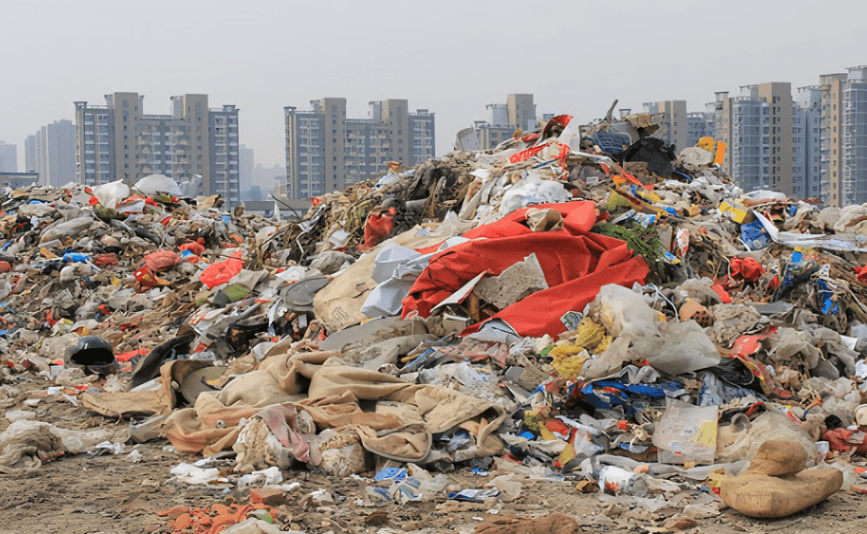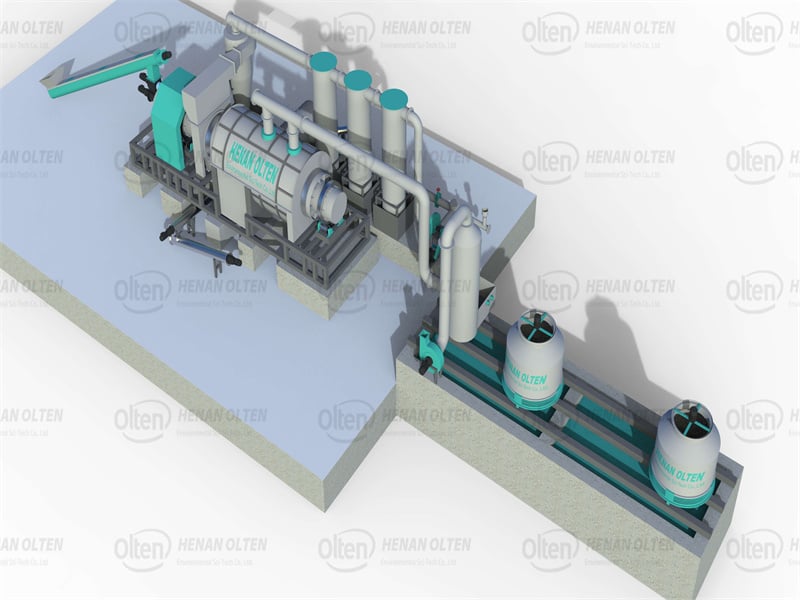What is municipal solid waste?
Municipal Solid Waste refers to the solid waste generated in the daily life of urban residents or activities providing services for urban daily life, mainly including domestic garbage, sludge, waste electrical and electronic products and medical waste.
What is carbonization?
Carbonization is a kind of pyrolysis technology of biomass under anoxic or oxygen poor conditions to prepare corresponding carbon materials.
Advantages of carbonization treatment of municipal solid waste
Treatment of municipal solid waste by carbonization is a treatment method that conforms to the relevant national laws and policies at present, and represents the new technology and direction of municipal solid waste treatment. Charcoal production equipment has been widely used in municipal solid waste treatment.
- Carbonization technology is a reduction reaction in essence, and it fundamentally reduces carbon dioxide emissions without burning.
- Carbonization technology has low cost, and the sorting technology that can be flexibly increased or decreased is more suitable for the actual situation of comprehensive utilization of solid waste in domestic cities.
- The secondary high temperature combustion of combustible gas generated by pyrolysis and carbonization eliminates the harmfulness of tail gas emission from solid waste treatment.
- The porous and porous biochar produced by pyrolysis and carbonization has good adsorption property and can be used as an ideal material for activated carbon adsorption. At the same time, it can solidify toxic and harmful ingredients such as heavy metals.
- The carbonization technology has significantly reduced the amount of waste after treatment by more than 95%. Compared with traditional landfill treatment, it can save more land area.

Hazards of municipal solid waste
To the ecological environment
Harmful components in solid wastes cause potential harm to nature, including human beings and organisms. Once harmful substances are dissolved or leaked, they will lead to changes in ecological balance and destruction of natural resources.
To soil environment
Soil is a place where many bacteria, fungi and other microorganisms live together. These microorganisms and their surrounding environment form an ecosystem. Solid wastes, whether they pollute the atmosphere or the water, will inevitably affect the soil environment.
To water environment
If solid wastes are discarded in water bodies, they will directly pollute the water bodies, seriously endanger the living conditions of aquatic organisms, and affect the full utilization of water resources.
To atmospheric environment
Incineration has become one of the major sources of air pollution in some countries. Some solid wastes can be decomposed by microorganisms under appropriate temperature and humidity, releasing harmful gas, toxic gas or odor, causing regional air pollution and even explosion.
To environmental sanitation
As there is no suitable disposal site, when solid waste is dumped at will and stacked in large quantities without proper treatment, it will not only hinder the city appearance, but also affect the urban environmental sanitation. Moreover, the stacked urban domestic waste is very easy to ferment and decay, producing stench, causing mosquitoes, flies, mice and other breeding, and easy to cause disease transmission.

Olten Machinery has mature technology of carbonization treatment of municipal solid waste, the Continuous carbonization machine produced will help customers gain profits. If you are interested, please consult us.







